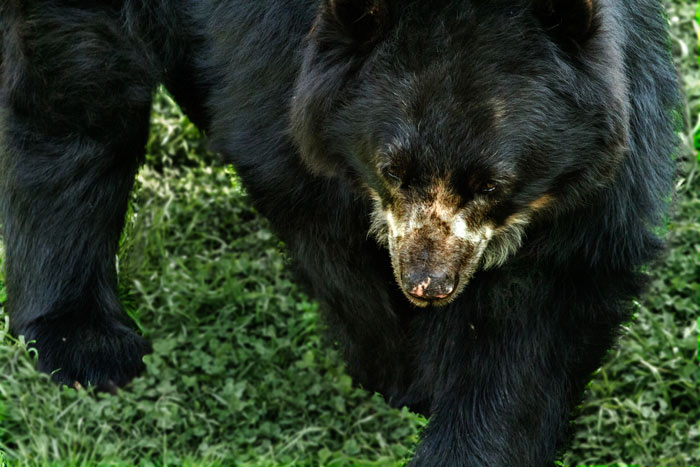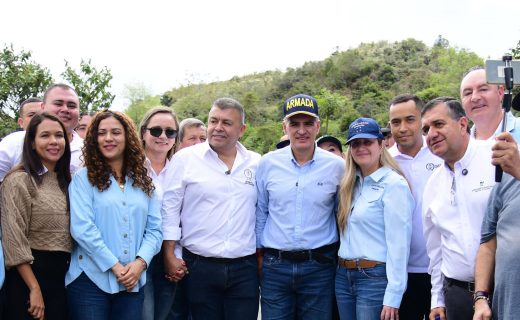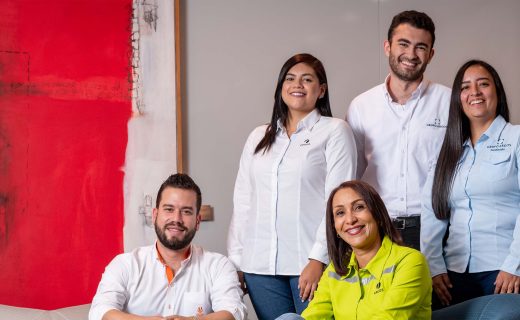

On the International Day of the Andean Bear, the Conservamos la Vida program announces the protection of 280 new hectares for the conservation of the species
21 February 2022- The new protected area is achieved thanks to the signing of conservation agreements within the framework of the Conservamos la Vida program, led by Fundación Grupo Argos, Parques Nacionales Naturales and WCS Colombia.
- With these 280 new protected hectares in the department of Huila, the Conservamos la Vida program expands its framework of action by integrating new Andean Bear conservation centers in the country’s central mountain range.
- The Andean Bear is an umbrella species for the Andean forests, its protection contributes to the conservation of other wild species and strategic ecosystems.
- The investment for this program reaches to date more than COP 5,000 million and adds 76 agreements with rural families and 2,661 protected hectares, allowing the consolidation of a biological corridor so that the species can move freely.
The protection of these hectares is possible thanks to the Conservamos la Vida program and the work carried out in alliance with the communities in the central and western mountains of the country to contribute to the conservation of the Andean Bear. Within the framework of the alliance, actions are carried out such as the conservation of the forest area, ecological restoration, the development of sustainable productive projects and environmental education processes to reduce the conflict between the bear and the peasant communities.
Of the 280 new protected hectares located in the municipality of Santa María in Huila, 115 will be used exclusively for the implementation of conservation strategies and the strengthening of a biological corridor so that the species can move freely through the territory. The remaining area will be used for sustainable production processes. With the protection of this territory, the Conservamos la Vida program expands its framework of action to the central mountain range of the country.
“These types of initiatives show that a great impact can be generated in the communities and in the ecosystem when there is a union of efforts between the different actors in the territory. The signing of new agreements not only represents an achievement, but also a motivation to continue strengthening this alliance and continue celebrating the existence of this species that is so important for the conservation of forests and water resources in our country.”
María Camila Villegas – Operations Director of Fundación Grupo Argos
The implementation of conservation agreements has shown a decrease in the vulnerability of the species and of the conflict with the human being, in addition to contributing to the improvement in the quality of life of the community through initiatives such as Café Oso Andino, the first in its category in being produced by 10 peasant families from Valle del Cauca who allocated part of their land exclusively to conservation and, in exchange, received support to improve their production practices. To date, more than 10 tons of coffee have been marketed, including exports to Asian countries.
The investment for this program reaches more than COP 5,000 million and adds up to 76 agreements with farmers and 2,661 protected hectares. In addition, 1,086 children and 73 teachers from rural and municipal schools have participated in environmental education and awareness processes.
Mas noticias
-
 Employer Brand
Employer Brand -
 Talent
TalentOver 2,800 Employees Trained in Diversity and 57% Female Representation on the Board of Directors: Grupo Argos Advances Its Equity and Inclusion Strategy
15 April 2025 Read more -
 Creamos Valor Social
Creamos Valor SocialMore than 25,000 people will benefit from the improvement of the Alto de la Quiebra – Santo Domingo road, developed through the Works for Taxes mechanism
9 April 2025 Read more -
 Talent
TalentAccess to postgraduate programs: one of the talent development benefits that more than 200 Grupo Argos employees have used in recent years
8 April 2025 Read more -
 Employer Brand
Employer BrandMore than 1,800 employees from Grupo Argos companies went through internal mobility processes during 2024, with 27% of them being promotions
3 April 2025 Read more
